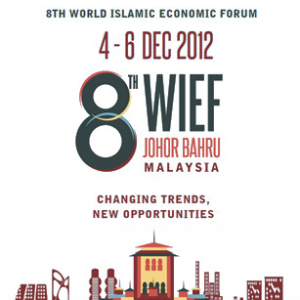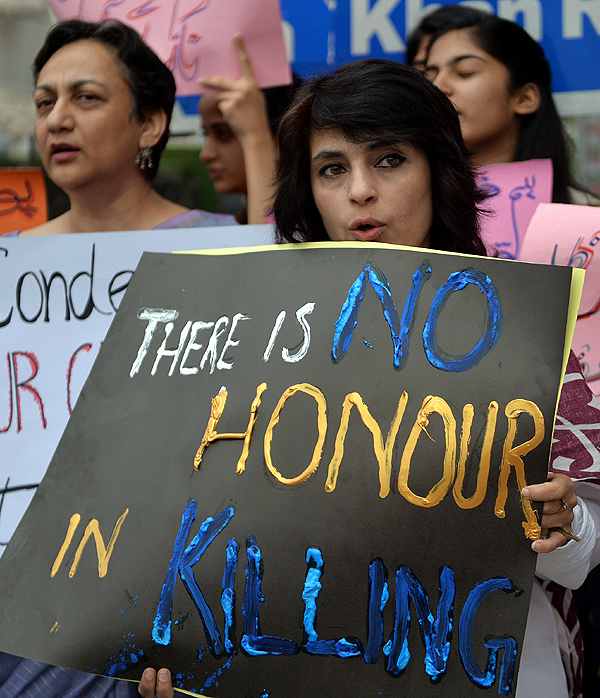Pakistan seeks sound framework to increase intra-state cooperation
Tuesday, December 4th, 2012 2:43:22 by News Pakistan Admin
Pakistan has underscored a sound framework to increase intra-state cooperation and deepen economic relations among the Muslim countries to tackle issues such as shortage of energy, food, water security and sustainable development for the people.
“Such intra-Islamic cooperation is also critical to ensure greater focus and investment of resources on education and promotion of science and technology cooperation,” said Federal Defence Minister Syed Naveed Qamar while representing Pakistan at the 8th Annual Meeting of the World Islamic Economic Forum (WIEF) held at the city of Johor Bahru in Malaysia. Malaysian Prime Minister Dato Sri Najib Tun Abdul Razak and WIFE Chairman Tun Musa Hitam were also present among other leaders and delegates.
Syed Naveed Qamar underscored skill development and capacity building of human resource within the Muslim countries to create greater demands in the national and international markets and called for sharing “our financial and commodity surpluses through institutional mechanisms”. “We should share best practices and create complementarities … to promote an unhindered flow of capital, labour, goods and services,” he said.
The Minister noted that collective progress and prosperity could only be achieved through reforms at national levels and cited the case of Pakistan which “commenced a journey in 2008 towards a better future for our people”. “Over the past five years our government with the support of the resilient people of Pakistan has been implementing bold policies to bring about equitable socio-economic development in the country,” he said.
He further informed the delegates Pakistan had introduced “wide-ranging reforms” to keep the fundamentals of the economy strong as reflected in the robustness of stock markets and the success of initiatives such as Benazir Income Support Programme to pull millions out of poverty.
He said Pakistan had emerged as “one of the most attractive destinations for making investments”. “The challenges exist, but we have proved to be resilient and are well on our way to sustained growth,” he said, inviting businessmen and investors from Muslim countries to come to invest in Pakistan and take advantage of the “enormous investment opportunities with a highly attractive investment regime”.
He told the delegates there were over 500 international companies already investing in Pakistan to use it as a hub for regional trade and investment. “As we believe that prosperity is not possible without enduring peace, we have taken concrete steps to leverage Pakistan’s strategic location to promote peace, security and prosperity in the region and especially in the Islamic world,” he said, adding Pakistan was also making sincere efforts to normalize relations with India and to establish peace and stability in Afghanistan.
He described the theme of “Setting new trends and benefitting from opportunities” being discussed at the Forum, as a clarion call and urged member countries seize the moment to “transform the emerging economic and business opportunities to our own interests in a just and equitable manner”.
He said the Forum had served well so far in providing the strategies and modalities to achieve the objective and inspiring the entrepreneurs in the Muslim world. However, he cautioned against complacency, saying while progress had been made in many areas, full dividends of this progress were yet to be reaped individually and collectively. “We are sure that the Muslim world with its rich resources and strong determination will be able to turn the financial and economic challenges into opportunities and would establish new and beneficial trends for all in doing business, making investments and conducting trade,” he said.
He hoped the 8th Annual Meeting of the World Islamic Economic Forum in Malaysia would provide “us with an opportunity to exchange views on important global issues”. “The participation of leaders from the government and corporate sector reflects our common concerns to address to the daunting challenges we are facing today … it is also an opportunity to share our experiences to find solutions to the problems we face in our countries,” he said.
Highlighting the contribution made by Pakistan to various activities and events of the Forum, Syed Naveed Qamar particularly mentioned the 2nd meeting of the Forum which was hosted by Pakistan in November 2006 and proved to be a milestone in setting direction for the Forum’s future agenda and evolving strategies for creating better understanding of the business opportunities and integration with the global economy. “Today, it is quite heartening to see that the Forum has expanded its outreach to encompass other important groups of our societies, including active participation of women and the youth,” he noted.
The minister reminded the delegates time had come for us to practically realise the ideas and strategies debated and agreed on in the previous seven sessions of the Forum. “We must now enter the phase of utilising our rich human capital, immense resources and political determination for achieving economic growth,” he said, noting the member countries constituted one-fifth of the humanity but their economic performance and share in global business and trade had not been in keeping with their “tremendous business and commercial potential”.
He also called for greater efforts to “exploit the new economic environment” which envisaged a stronger and greater role for the private sector in leading the process of economic growth while the governments acting as the facilitator and regulator”. “We have also not started to benefit from the expansion of global trade, massive capital flows and exchange of technology across the world … the sooner we adjust to the ground realities of the emerging environment, the brighter our prospects of success would be,” he stressed.
Mr. Naveed Qamar noted that the world was still suffering from economic downturn which could be stopped and reversed only through alternative and innovative ways to govern international business in a just and sustainable manner. “As the previous models have failed to provide enduring solutions of running economies, the world is desperately looking for new templates and it is an opportunity for the Muslim economies to be innovative and to provide alternative solutions,” he opined.
He also stressed increased trade and business activities within the Muslim countries through strong linkages between businesses and interaction with regional and international economic organizations.
He said Pakistan had voiced “similar concerns at the 8th Summit of the eight developing Muslim countries (D-8) held in Islamabad on 22 November 2012. “As we strongly believe more business cooperation is the only way of addressing the economic and political problems, we organised a number of business and trade events on the sidelines of the D-8 Summit,” he said, adding the events were aimed at forging public-private partnerships and linkages between the private sectors.
He shared with the delegates some of the key proposals and recommendations of the D-8 Summit such as establishment of trade and development banks, barter trade, promotion of halal sector, and Islamic financing, saying these proposals could be adopted and implemented in other Muslim countries through a close and proactive interaction between D-8 and WIEF in devising development strategies.
Short URL: https://www.newspakistan.pk/?p=35814

















